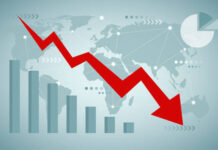By James M. Roberts and William T. Wilson, Ph.D.*
The Index of Economic Freedom, published annually by The Heritage Foundation and The Wall Street Journal, is entering its third decade with the publication of the 21st edition. Since the first edition the world has witnessed profound advances in the cause of freedom. Open economies have led the world in a startling burst of innovation and economic growth, and political authorities have found themselves increasingly held accountable by those they govern.
Despite continuing challenges confronting the world economy, the global average economic freedom score has improved over the past year by one-tenth of a point, reaching a record 60.4 (on a scale of 0 to 100) in the 2015 Index. Although the rate of advancement has slowed in comparison with the previous year’s near record 0.7 point increase, the world average is now a full point higher than the score in the aftermath of the financial crisis and recession, thus regaining all of the ground lost.
On a worldwide basis, the increase in economic freedom was driven by improvements in trade freedom, monetary freedom, and freedom from corruption, for which global ratings have advanced by an average of close to one point or more.
Regrettably, average scores for most other economic freedoms—including business freedom, property rights, labor freedom, and financial freedom—have registered small declines. More troubling were the declines in the Index measures of government size. With a drop of 0.8, the control of government spending has recorded the largest deterioration, reflecting a continuation of countercyclical or interventionist stimulus policies in many countries.
Furthermore, the world continues to witness profoundly worrisome attacks on economic and political freedoms, for example by ISIS in the Middle East and North Africa and by Russia in Europe and Central Asia. Elsewhere, the failures of populist authoritarian regimes, such as in Venezuela, have inevitably generated economic chaos. Meanwhile, economic growth rates in the U.S., Japan, and the EU remain stagnant.
The United States continues to rank as only the 12th freest economy, seemingly stuck in the ranks of the “mostly free,” the second-tier economic freedom category that the U.S. dropped into in 2010. However, the downward spiral in U.S. economic freedom over the previous seven years has come to a halt. In the 2015 Index, the U.S. recorded modest score gains in six of the 10 economic freedoms and an overall score increase of 0.7. On the other hand, the U.S. score for business freedom plunged below 90, the lowest level since 2006.
The long slide in American economic freedom has been accompanied by stagnant growth of the U.S. economy and persistently high unemployment and underemployment. Adoption of the revitalizing policies of economic freedom in the United States is essential to creating good new jobs for Americans. It is also vital to promote economic freedom abroad because U.S. companies and workers increasingly rely on international trade and finance to improve productivity and to build markets.
America is a global economic superpower, but to maintain its position, its government and business community must encourage the free flow of capital, goods, services, and ideas around the world, which contribute to ongoing U.S. and global prosperity. Implementing such forward-looking policies would kick-start the economic dynamism and innovation that will lead to better products, new markets, and greater investment.
In this fifth annual Global Agenda for Economic Freedom, a diverse team of Heritage Foundation policy experts make key observations about eight global regions: Sub-Saharan Africa, North America (the U.S., Canada, and Mexico), the Asia–Pacific, the Middle East and North Africa, Central and South America and the Caribbean, Europe, Russia, and the Arctic. In each region, Heritage experts identify obstacles to expanding economic freedom and the actions that regional governments should take, and make concrete recommendations on roles the U.S. can take in promoting economic liberty.
While these recommendations are crafted for individual regions, some themes appear repeatedly worldwide—particularly the importance of protecting property rights, fighting corruption, and pushing back against a revival of the failed state-owned-enterprise model and creeping crony corporatism and government favoritism. These are summarized in a Global Issues section at the beginning of the report.
To help nations to achieve such goals, the report also identifies opportunities in virtually every region for the U.S. government to forge new agreements and initiatives that will promote job-creating, private sector–led trade and investment.
The emphasis on free trade is not surprising. Countries with the lowest trade barriers also have the strongest economies, the lowest poverty rates, and the highest per capita income. Thus, the “free trade tool” is an ideal instrument for expanding economic freedom. In particular, new initiatives, such as the ongoing negotiations for a Trans-Pacific Partnership (TPP) of 12 Pacific Rim nations as well as a Trans-Atlantic Trade and Investment Partnership (TTIP) between the European Union and the United States, hold some promise. If negotiated well, these agreements could create new economic opportunities by expanding trade among the United States, Asia, Latin America, and the member states of the European Union.
History teaches that the human spirit thrives on fairness, opportunity, transparency, and liberty. The downfall of the Soviet Union, the liberation of Eastern Europe, the opening of China, and the ongoing “Arab Spring” are vivid reminders of this truth. The human spirit is the real wellspring of economic prosperity and enduring development, and that spirit is at its most inspired when it is unleashed from the chains that have bound it.
The fight for freedom necessitates perpetual vigilance. The false idols of socialism and collectivism in the name of social justice and equality are never short of deceptive emotional appeal. When they become the touchstones of government policy, the unavoidable economic and social results are stagnation, deprivation, coercion, and even the gradual erosion of the rule of law.
This report lays out a plan to push back against those false promises and to promote economic freedom in the world. It offers Washington a blueprint—a global agenda—for a practical and effective strategy to promote economic freedom around the world and restart growth at home. This global agenda can—and should—be implemented. Now.
—James M. Roberts and William T. Wilson, PhD, eds.
Source: EurasiaReview










